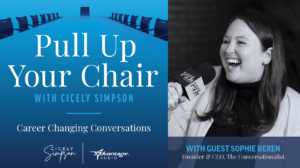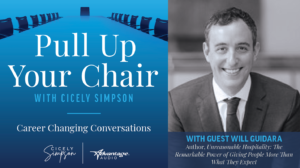President Donald Trump
- We’re here today to discuss the exciting progress that we’ve achieved under the Operation Warp Speed, our historic initiative to develop, test, manufacture, and deliver a vaccine in record time. That’s what it is, in record time.
- Likewise, therapeutically, we are very, very advanced. You’re hearing about it, and you’ll be hearing about it a lot more in the next two weeks. We will achieve a victory over the virus by unleashing America’s scientific genius, which is what it is.
- I’m therefore proud to announce that this morning, the Moderna vaccine has officially entered phase three already. That’s phase three clinical trials: the final stage before approval. There’s never been anything like this, in terms of speed — nothing even close.
- A second vaccine is likely to enter phase three in a matter of days. Under Operation Warp Speed, we’ve shaved years off of the time that it takes to develop a vaccine — in some cases, many years — and we’ve done it while maintaining the FDA gold standard for safety. This is the fastest a vaccine for a novel pathogen has ever gone. It has never gone like this.
- Four additional promising candidates are expected to enter final trials in the coming weeks, including the Novavax vaccine being developed right here at this facility. It’s an incredible facility. We’re going to be making a tour in a little while — a very, very complete tour — with the folks that run it and the people that operate.
- We’ve just completed a tour of Fujifilm’s innovation laboratories. That’s going to be done at a much, much higher level in a few minutes after I’m finished, and I believe we’ll take a few questions too which were carrying out a crucial biomanufacturing process needed to make the Novavax vaccine.
- This production is made possible by my administration’s $1.6 billion award to Novavax as part of Operation Warp Speed. It lets us deliver the final product in a time that never has been achieved anywhere, at any time, for anything like this.
- These same manufacturing processes are being conducted on an even larger scale in College Station, Texas.
- I’m proud to announce that HHS has just signed a $265 million contract with the Fujifilm-Texas A&M Innovation Center, which is quite the place, to dramatically expand their vaccine manufacturing capacity.
- I want to thank Fujifilm CEO Martin Meeson for welcoming us today. It’s really wonderful to be with you under these circumstances in particular, with all the progress that’s being made. As well as Novavax CEO, Stanley Erck. Stanley, thank you very much for being here.
- Thanks also to Secretary Alex Azar, who is with us; Senator Thom Tillis, thank you very much. Representatives Richard Hudson, David Rouzer, Mark Walker, Dan Bishop, and Greg Murphey, thank you. All friends. All warriors. Lieutenant Governor Dan Forest, who I hear is doing a great job. North Carolina House Speaker Tim Moore, thank you. President Pro Temp of the North Carolina State Senate, Phil Berger.
- Operation Warp Speed is funding a historic portfolio of highly promising vaccine candidates. In addition to our $1.6 billion investment in Novavax, we’ve issued a $483 million contract with Moderna, a $1.2 billion contract with AstraZeneca, a $465 million contract with Janssen, and just last week, a $1.95 billion agreement with Pfizer. Tremendous progress is being made with all of those great companies.
- A groundbreaking agreement with Pfizer includes a guarantee to deliver 100 million doses shortly after the vaccine’s approval — almost immediately — with the option to purchase an additional 500 million thereafter. Not only is Operation Warp Speed accelerating the development of a vaccine, we’re also directing a colossal industrial mobilization to ensure its rapid delivery. Nothing has happened like this since the end of World War Two.
- Instead of the usual sequence of vaccine development, testing and trials, followed by production, our strategy is to conduct these phases simultaneously. Everything goes at one time. We’re not waiting and waiting and waiting; it’s all going at one time. We have a system that I think it’s unparalleled. Never been done before, but we suspect it’s going to work, and work very well.
- We’re mass producing all of the most promising vaccine candidates in advance so that on the day one that it’s approved, it’ll be available to the American people immediately.
- We’ll probably have a lot for a lot of other people throughout the world. The world is suffering from this China virus.
- Another dimension of Operation Warp Speed is our focus on therapeutics to treat the virus. Over 140 clinical trials are underway, and a number of effective therapies have already been developed and widely delivered, including remdesivir, which is having a tremendous impact. We have numerous treatments right now that are under study, and I think over the next couple of weeks, we may actually have some very positive answers as to that.
- On July 7th, we announced a $450 million agreement with Regeneron to begin advanced manufacturing of its antibody treatment, which is currently in late-stage clinical trials. Late stage.
- Due to the medical advances we’ve already achieved and our increased knowledge in how to treat the virus, the mortality rate for patients over the age of 18 is 85 percent lower than it was in April, think of that 85 percent, 25 percent lower than Europe as a whole.
- In the middle of April, more than 22 percent of all deaths in the United States were attributable to the China virus. As the last week, that number has dropped down, as of last week, it’s dropped down to under 7 percent.
- To decrease the turnaround times for testing, the first two laboratories have been approved to provide pooled testing. In other words, samples from multiple patients are processed together. They’re pooled. Now, pool testing will reduce turnaround times by substantially more than 50 percent.
- Last week, our Centers for Medicare and Medicaid Services began distributing rapid point-of-care diagnostic test instruments to all of the nursing homes in the United States, focusing on the areas of greatest need, which is our elderly and our nursing homes.
- What we’ve already sent includes testing instruments to 635 nursing homes for 196,000 rapid point-of-care tests. It’s a tremendous amount. You’ll get your response and answer from 5 to 15 minutes.
- Over the next three weeks, 1,700 nursing homes will receive an additional 800,000 point-of-care tests. Think of that. The United States has conducted over 52 million tests. That’s more than all of Europe put together, times two. Nobody is even close. As countries go, as an example, India is up to 11 million tests. We’re going to be very shortly at 55 million tests. India has 1.4 billion people.
- Through our relentless efforts, we’ve completely rebuilt our stockpile, which the previous administration depleted and did not refill. The cupboards were bare. I say it often. In total, we’ve now distributed nearly 100 million N95 masks, 35 million surgical masks, 15 million face shields, and much, much more. In addition to that, ventilators, the most difficult thing of all, we are now building thousands a month, and we’re distributing them. We have all we need in our country, but to other countries that are in desperate need. Other countries are having a tremendously difficult time with the virus.
- Last week, FEMA sent additional personal protective equipment to over 15,000 nursing homes, including 643,000 pairs of protective eyewear, 7 million masks, 34 million pairs of gloves, and 6 million gowns. It’s a lot.
- Over the weekend, cases in Florida, Texas, and Arizona held steady and are now heading down. In Arizona, they’re heading very substantially down, and rapidly. We’ve been in constant communication with the states and are surging them resources when requested. They largely had what they needed, but anything they need, we send them immediately. We are totally full, we have everything we need, we get it to the states immediately, we deal with the Governors. The relationship with the governors has been very good.
- These states are not out of the woods, but rigorous compliance with guidelines should allow them to turn the corner, and very, very quickly. We are working with every governor and health commissioner across the country to bring a complete, individualized analysis to each state, as well as tailored recommendations. States are different.
- My Administration is also closely monitoring the surging caseload in Latin America, which is now the region in the world with the most active reported infections, by far. Due to the relative scarcity of testing in Latin America, however, the region’s reported number of cases is also likely to be dramatically undercut or undercounted. And I can say that’s probably true throughout the entire world. We report our cases; most of the world doesn’t. They either don’t do testing, therefore they have very few cases, even though people are sick, or they just don’t report it.
- Given the reality of what we just said, we’re focusing aggressively on the Texas border and countries that we think have to be watched very, very carefully, because you have some very, very highly infected countries outside of our borders.
- I’ve spoken with Governor Abbott. I can report that over 3,300 federal personnel are on the ground in Texas. We’ve given them a tremendous amount of extra help, including doctors, nurses, frontline people. We’ve supplied Texas with more than 2.5 million gloves, 800,000 goggles, 337,000 surgical gowns, 1.8 million surgical masks, 1.36 million N95 respirators, and half a million KN90 masks.
- Beginning this week, Texas hospitals will receive 500 cases of remdesivir, which has proven very effective, enough to treat 3,200 patients.
- In addition to the cross-border spread, this stage of the pandemic is being fueled by younger Americans who generally have little risk of being seriously harmed by the disease but can spread the disease. We need all Americans to be conscious about their actions and to exercise extreme vigilance.
- I trust all Americans to do the right thing, but we strongly advise everyone to especially, especially focus on maintaining a social distance, maintaining rigorous hygiene, avoid large gatherings and crowded indoor bars, and wear masks when appropriate.
- We also strongly urge citizens to take extra precautions to shield those at highest risk, which are, in most cases, in many cases, especially the elderly with medical problems, such as heart or diabetes. But you want to shield them, and you want to guard them, and you want to protect them from the virus especially those that are really targeted, you could say, by this horrible, horrible plague, this horrible epidemic, pandemic.
- America will develop a vaccine very soon, and we will defeat the virus. We will have it delivered in record time. As our visit here demonstrates — and I want to thank all of the people and representatives from the great state of North Carolina. This is a great — this is a great place. It’s a phenomenal place. And we’ve had so many great meetings and such a great time.
- The drive and tenacity of your representatives and your politicians has been incredible. When they call them there, when they call — most of them, many of them are sitting here right now — I will always answer their call.
Topics covered in the answer and question portion of the briefing can be found here: July 27 Briefing


